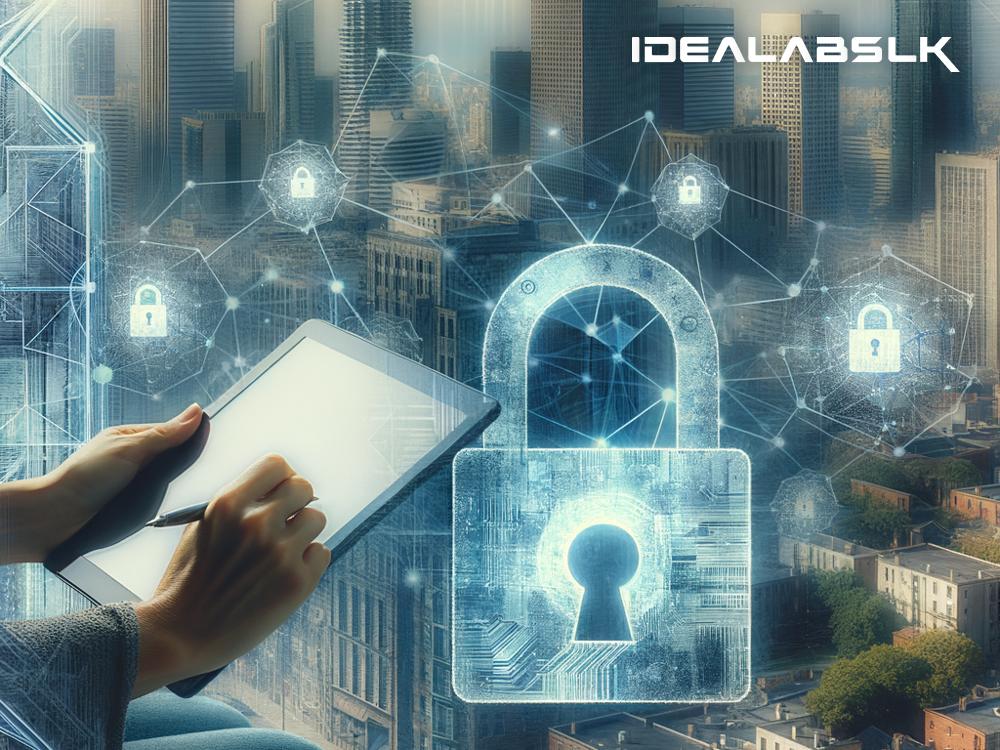Blockchain Solutions for Making Real Estate Investment Secure
In the modern world, buying a house or investing in property isn’t as simple as picking a place and paying for it. Real estate involves huge sums of money and requires a lot of paperwork, checks, and balances to ensure everything is fair and secure. This is precisely where blockchain technology, the brain behind cryptocurrencies like Bitcoin, is stepping in to make a big difference. Let’s break down how blockchain can make investing in real estate safer and more secure, in terms everyone can understand.
Understanding Blockchain
Imagine a digital ledger that is open for everyone to see and verify, but no single person can tamper with it. This is the essence of blockchain. It is a chain of blocks, where each block contains data or transactions. Once a block of data is verified and added to the chain, it cannot be changed or deleted. This makes blockchain incredibly secure and transparent.
Challenges in Traditional Real Estate Investments
Investing in real estate has always been a lucrative option, but it comes with its own set of challenges:
- Paperwork and Fraud: There's a ton of paperwork involved, and unfortunately, that gives room for forgeries and fraud.
- Middlemen Costs: Buyers and sellers often have to go through various intermediaries, which adds extra costs.
- Lack of Transparency: It’s hard to access the full history of a property, including past transactions and ownership details.
- Slow Transactions: The buying process can be lengthy, taking weeks or even months to complete.
How Blockchain Helps
-
Security and Transparency: Since every transaction is recorded in a way that cannot be changed or deleted, blockchain ensures that all property records are accurate and tamper-proof. This significantly reduces the risk of fraud.
-
Tokenization of Assets: Imagine being able to own a piece of a property as easily as buying a share of a company. Blockchain enables the tokenization of real estate assets, allowing investors to buy and sell fractions of a property. This can potentially open up real estate investment to more people, as it lowers the entry price.
-
Smart Contracts: These are self-executing contracts where the terms of the agreement are directly written into lines of code. This can automate the leasing, purchasing, and payments related to real estate, cutting down on paperwork and making transactions faster and more efficient.
-
Reducing the Need for Middlemen: With blockchain’s peer-to-peer nature, many of the intermediaries traditionally involved in real estate transactions, like brokers, lawyers, and banks, could be bypassed, saving costs for both buyers and sellers.
-
Enhanced Liquidity: Real estate is known for being a relatively illiquid asset; it takes time to sell a property and access your investment. However, with blockchain, the ease of trading tokenized assets could enhance the liquidity, making it easier to sell and buy property investments.
Practical Examples in Action
Several companies and projects are already exploring blockchain solutions in real estate:
-
Propy is a company that has completed transactions using blockchain, aiming to simplify the home-buying process with its platform.
-
RealT allows investors to buy into properties for as little as a few dollars, using blockchain tokens to represent their shares.
These examples are just the tip of the iceberg, demonstrating blockchain's potential to revolutionize real estate investments.
Looking Forward
While blockchain offers a promising solution to many of the issues plaguing real estate investment, it’s not without challenges. Regulation, adoption, and the transition from traditional systems remain significant hurdles. However, as technology evolves and stakeholders in the industry become more open to change, the future of real estate could very well be built on blockchain.
Conclusion
Blockchain technology offers a compelling mix of security, efficiency, and accessibility that could redefine real estate investment. By eliminating many of the traditional barriers and risks, blockchain has the potential to make real estate investment more transparent, fair, and accessible to a broader range of people. As we move forward, the integration of blockchain in real estate will likely become more prevalent, paving the way for a new era of investment security and possibilities.

